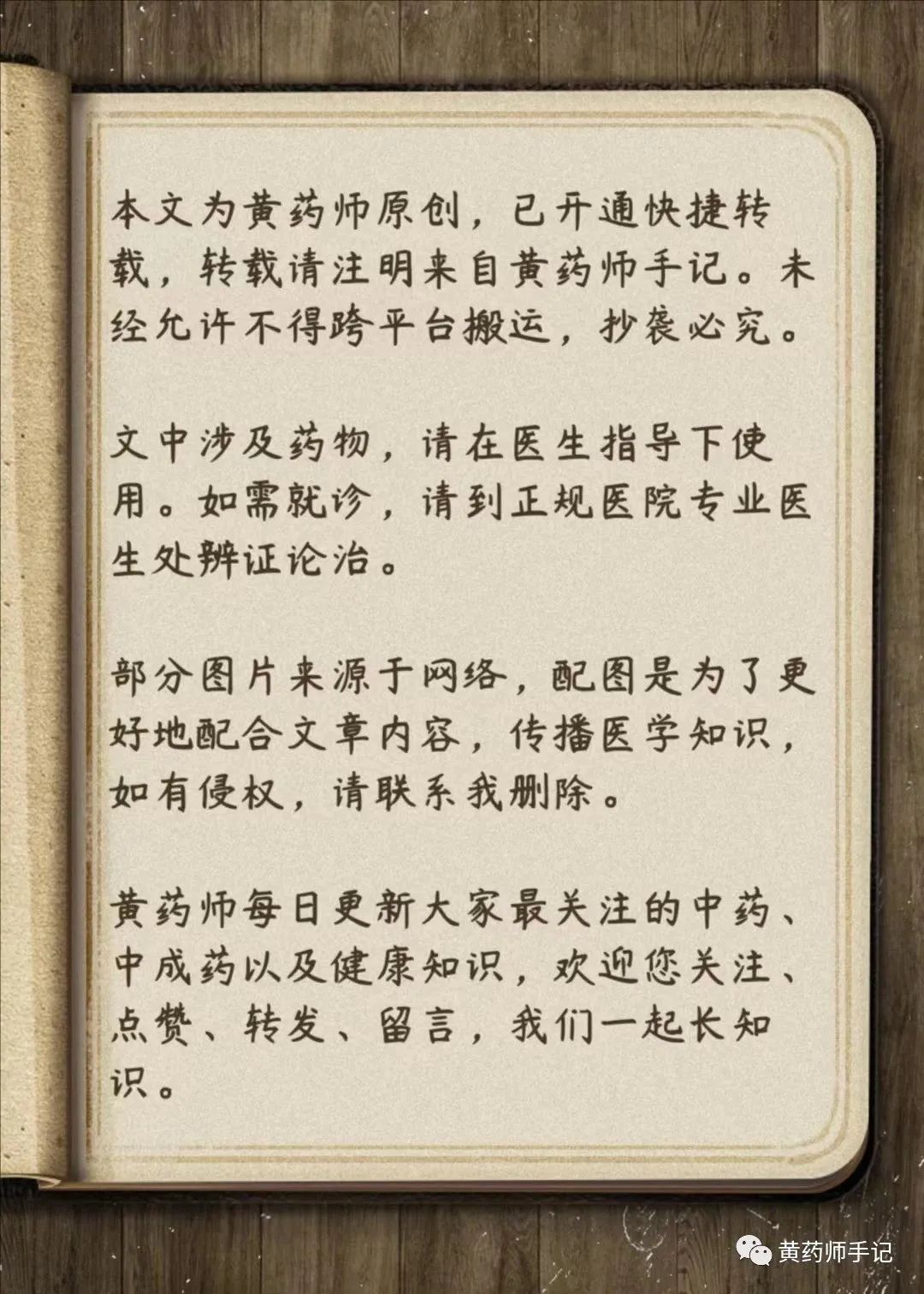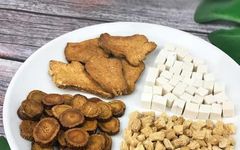Qi deficiency primarily refers to the deficiency of Qi in the spleen and lungs, characterized by symptoms such as fatigue, shortness of breath, breathlessness upon exertion, low voice, pale complexion, poor appetite, pale tongue with white coating, and weak or large pulse.
The main herbs used for this condition include Ren Shen (Ginseng), Dang Shen (Codonopsis), Huang Qi (Astragalus), Bai Zhu (White Atractylodes), and Zhi Gan Cao (Honey-Fried Licorice).
Today, Huang Yaoshi will discuss several Qi-boosting TCM formulas; please use the following medications under the guidance of a physician.
1. Si Jun Zi Wan (Four Gentlemen Pill)
Composed of Dang Shen, Chao Bai Zhu, Fu Ling, and Zhi Gan Cao.
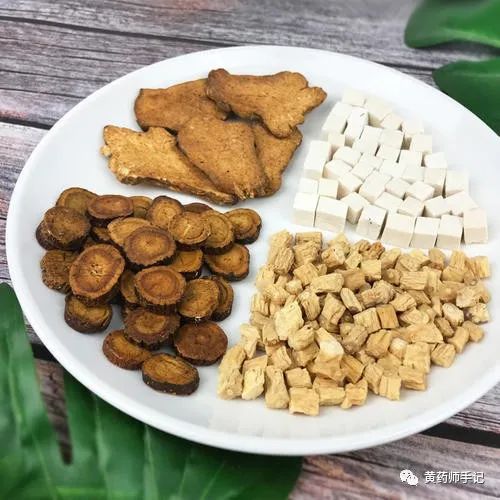 Si Jun Zi Tang: Bai Zhu, Fu Ling, Zhi Gan Cao, Dang ShenSi Jun Zi Tang is the most basic formula for boosting Qi and strengthening the spleen, used for spleen and stomach Qi deficiency, poor appetite, reduced food intake, and loose stools.Clinically, it is often modified by adding Chen Pi (Aged Tangerine Peel) and Ban Xia (Pinellia) to form Liu Jun Zi Wan/Liu Jun Zi Tang (Six Gentlemen Pill/Tang).Liu Jun Zi Tang enhances the effect of drying dampness and resolving phlegm. Since the spleen governs the transformation and transportation of water and dampness, Qi deficiency in the spleen can lead to excessive phlegm and dampness in the body, resulting in symptoms such as phlegm accumulation, chest tightness, fullness in the stomach, abdominal distension, and thick tongue coating.
Si Jun Zi Tang: Bai Zhu, Fu Ling, Zhi Gan Cao, Dang ShenSi Jun Zi Tang is the most basic formula for boosting Qi and strengthening the spleen, used for spleen and stomach Qi deficiency, poor appetite, reduced food intake, and loose stools.Clinically, it is often modified by adding Chen Pi (Aged Tangerine Peel) and Ban Xia (Pinellia) to form Liu Jun Zi Wan/Liu Jun Zi Tang (Six Gentlemen Pill/Tang).Liu Jun Zi Tang enhances the effect of drying dampness and resolving phlegm. Since the spleen governs the transformation and transportation of water and dampness, Qi deficiency in the spleen can lead to excessive phlegm and dampness in the body, resulting in symptoms such as phlegm accumulation, chest tightness, fullness in the stomach, abdominal distension, and thick tongue coating.
2. Xiang Sha Liu Jun Wan (Aromatic Sand Six Gentlemen Pill)
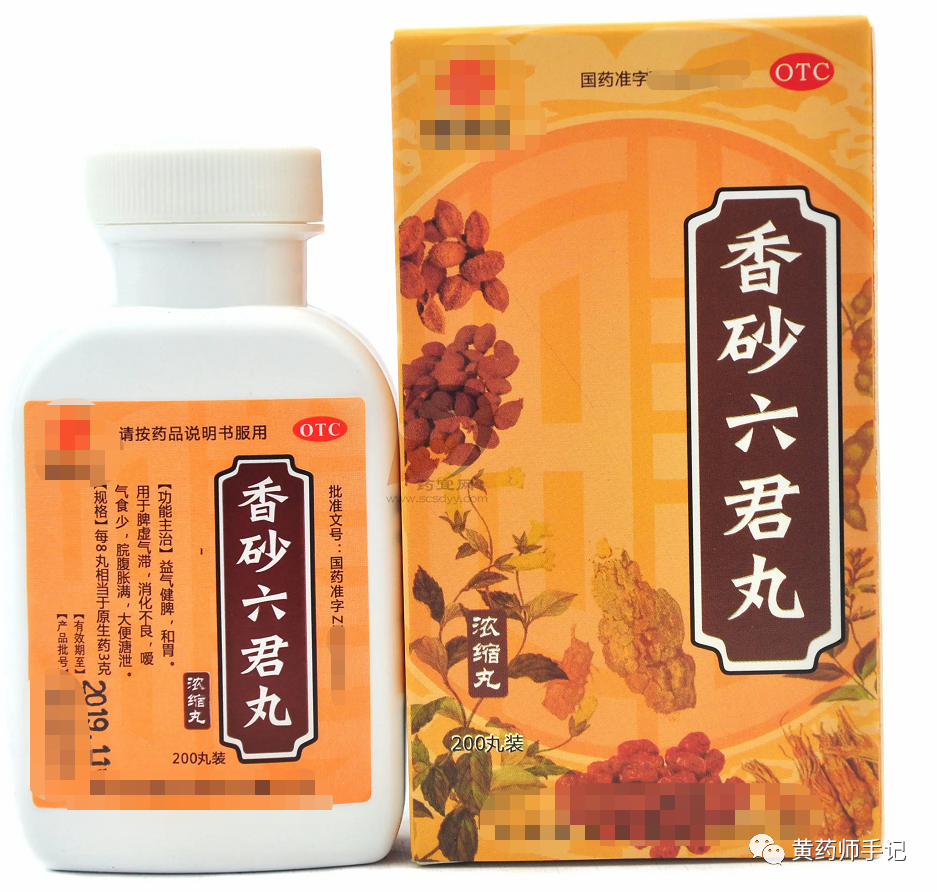 Image for reference only; please use TCM formulas under physician guidance.Composed of Mu Xiang (Aucklandia), Sha Ren (Amomum), Dang Shen, Chao Bai Zhu, Fu Ling, Zhi Gan Cao, Chen Pi, and Zhi Ban Xia.Xiang Sha Liu Jun Wan is based on Liu Jun Zi Tang, with the addition of Mu Xiang and Sha Ren. Mu Xiang promotes Qi and alleviates pain, while Sha Ren transforms dampness and promotes Qi, warming the middle and stopping diarrhea.Thus, Xiang Sha Liu Jun Wan enhances the effects of promoting Qi and alleviating pain, making it more effective for digestive disorders with Qi stagnation, such as belching, poor appetite, abdominal distension, and loose stools.Clinically, Xiang Sha Liu Jun Wan can be used for chronic gastritis, habitual constipation, and nausea and vomiting after chemotherapy.
Image for reference only; please use TCM formulas under physician guidance.Composed of Mu Xiang (Aucklandia), Sha Ren (Amomum), Dang Shen, Chao Bai Zhu, Fu Ling, Zhi Gan Cao, Chen Pi, and Zhi Ban Xia.Xiang Sha Liu Jun Wan is based on Liu Jun Zi Tang, with the addition of Mu Xiang and Sha Ren. Mu Xiang promotes Qi and alleviates pain, while Sha Ren transforms dampness and promotes Qi, warming the middle and stopping diarrhea.Thus, Xiang Sha Liu Jun Wan enhances the effects of promoting Qi and alleviating pain, making it more effective for digestive disorders with Qi stagnation, such as belching, poor appetite, abdominal distension, and loose stools.Clinically, Xiang Sha Liu Jun Wan can be used for chronic gastritis, habitual constipation, and nausea and vomiting after chemotherapy.
3. Bu Zhong Yi Qi Wan (Tonify the Middle and Boost Qi Pill)
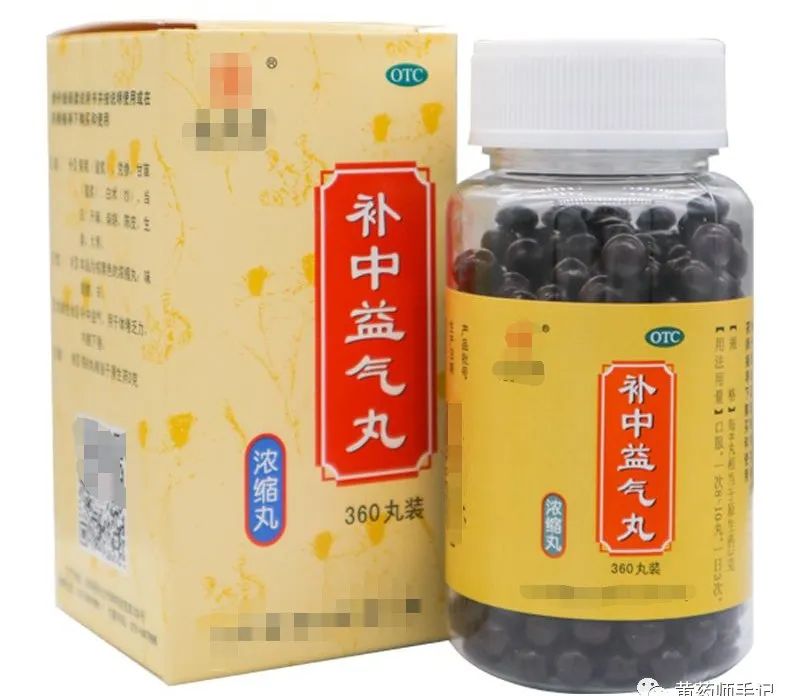 Image for reference only; please use TCM formulas under physician guidance.Composed of Mi Zhi Huang Qi (Honey-Fried Astragalus), Dang Shen, Mi Zhi Gan Cao (Honey-Fried Licorice), Chao Bai Zhu, Dang Gui (Angelica), Sheng Ma (Cimicifuga), Chai Hu (Bupleurum), and Chen Pi.Bu Zhong Yi Qi is used to tonify the spleen and stomach, and lift the Yang. It is indicated for spleen and stomach weakness, with symptoms such as diarrhea, prolapse of the rectum, and fatigue, as well as symptoms of Qi sinking like poor appetite, abdominal distension, and prolonged loose stools.This formula differs from other Qi-boosting formulas in that Bu Zhong Yi Qi Wan can lift the Yang. The Huang Qi, Sheng Ma, and Chai Hu in the formula have the effect of lifting Yang Qi, which can improve conditions caused by sinking Yang Qi, such as organ prolapse, heavy eyelids, and chronic diarrhea.4. Shen Ling Bai Zhu San (Ginseng, Poria, and Atractylodes Powder)
Image for reference only; please use TCM formulas under physician guidance.Composed of Mi Zhi Huang Qi (Honey-Fried Astragalus), Dang Shen, Mi Zhi Gan Cao (Honey-Fried Licorice), Chao Bai Zhu, Dang Gui (Angelica), Sheng Ma (Cimicifuga), Chai Hu (Bupleurum), and Chen Pi.Bu Zhong Yi Qi is used to tonify the spleen and stomach, and lift the Yang. It is indicated for spleen and stomach weakness, with symptoms such as diarrhea, prolapse of the rectum, and fatigue, as well as symptoms of Qi sinking like poor appetite, abdominal distension, and prolonged loose stools.This formula differs from other Qi-boosting formulas in that Bu Zhong Yi Qi Wan can lift the Yang. The Huang Qi, Sheng Ma, and Chai Hu in the formula have the effect of lifting Yang Qi, which can improve conditions caused by sinking Yang Qi, such as organ prolapse, heavy eyelids, and chronic diarrhea.4. Shen Ling Bai Zhu San (Ginseng, Poria, and Atractylodes Powder)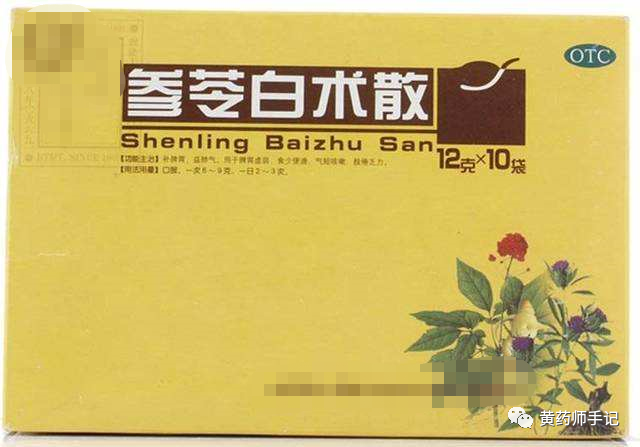 Image for reference only; please use TCM formulas under physician guidance.Composed of Ren Shen, Fu Ling, Chao Bai Zhu, Shan Yao (Chinese Yam), Chao Bai Bian Dou (Fried Hyacinth Bean), Lian Zi (Lotus Seed), Chao Yi Yi Ren (Fried Coix Seed), Sha Ren, Jie Geng (Platycodon), and Gan Cao.This formula tonifies the spleen and stomach and boosts Qi. It is used for spleen and stomach weakness, with symptoms such as poor appetite, loose stools, shortness of breath, and fatigue.The initial discussion of Qi boosting primarily refers to the Qi of the spleen and lungs, which is most evident in Shen Ling Bai Zhu San.In this formula, Ren Shen greatly tonifies the Qi of the spleen and lungs; Shan Yao tonifies the spleen and stomach while nourishing the lungs and kidneys, thus not only boosting Qi but also nourishing Yin.Bai Zhu, Fu Ling, Lian Zi, Bian Dou, and Yi Yi Ren all tonify and strengthen the spleen, while Jie Geng can promote lung Qi, and Zhi Gan Cao can also tonify the spleen and moisten the lungs.Therefore, this formula is distinguished from other Qi-boosting formulas by its ability to tonify both spleen and lung Qi, commonly used for conditions of simultaneous spleen and lung deficiency.
Image for reference only; please use TCM formulas under physician guidance.Composed of Ren Shen, Fu Ling, Chao Bai Zhu, Shan Yao (Chinese Yam), Chao Bai Bian Dou (Fried Hyacinth Bean), Lian Zi (Lotus Seed), Chao Yi Yi Ren (Fried Coix Seed), Sha Ren, Jie Geng (Platycodon), and Gan Cao.This formula tonifies the spleen and stomach and boosts Qi. It is used for spleen and stomach weakness, with symptoms such as poor appetite, loose stools, shortness of breath, and fatigue.The initial discussion of Qi boosting primarily refers to the Qi of the spleen and lungs, which is most evident in Shen Ling Bai Zhu San.In this formula, Ren Shen greatly tonifies the Qi of the spleen and lungs; Shan Yao tonifies the spleen and stomach while nourishing the lungs and kidneys, thus not only boosting Qi but also nourishing Yin.Bai Zhu, Fu Ling, Lian Zi, Bian Dou, and Yi Yi Ren all tonify and strengthen the spleen, while Jie Geng can promote lung Qi, and Zhi Gan Cao can also tonify the spleen and moisten the lungs.Therefore, this formula is distinguished from other Qi-boosting formulas by its ability to tonify both spleen and lung Qi, commonly used for conditions of simultaneous spleen and lung deficiency.
5. Huang Qi Granules (Astragalus Granules)
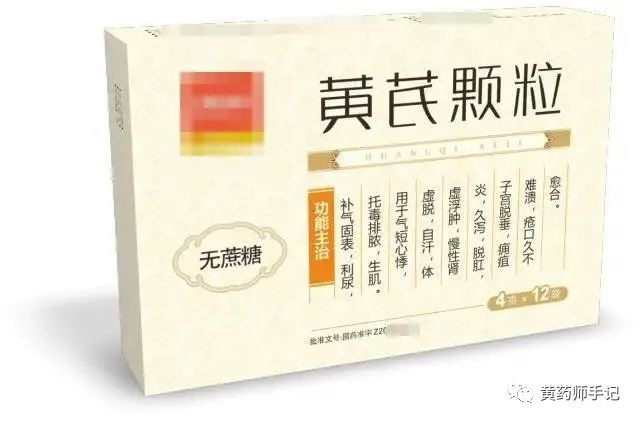 Image for reference only; please use TCM formulas under physician guidance.Composed solely of Huang Qi.This formula tonifies Qi and stabilizes the exterior. It is indicated for shortness of breath, palpitations, and spontaneous sweating.Huang Qi has the functions of tonifying Qi, stabilizing the exterior, promoting diuresis, expelling toxins, and promoting tissue regeneration. It is commonly used for shortness of breath, palpitations, collapse, spontaneous sweating, physical weakness, edema, chronic nephritis, prolonged diarrhea, rectal prolapse, uterine prolapse, and difficult-to-heal sores.
Image for reference only; please use TCM formulas under physician guidance.Composed solely of Huang Qi.This formula tonifies Qi and stabilizes the exterior. It is indicated for shortness of breath, palpitations, and spontaneous sweating.Huang Qi has the functions of tonifying Qi, stabilizing the exterior, promoting diuresis, expelling toxins, and promoting tissue regeneration. It is commonly used for shortness of breath, palpitations, collapse, spontaneous sweating, physical weakness, edema, chronic nephritis, prolonged diarrhea, rectal prolapse, uterine prolapse, and difficult-to-heal sores.
6. Ren Shen Jian Pi Wan (Ginseng Spleen Strengthening Pill)
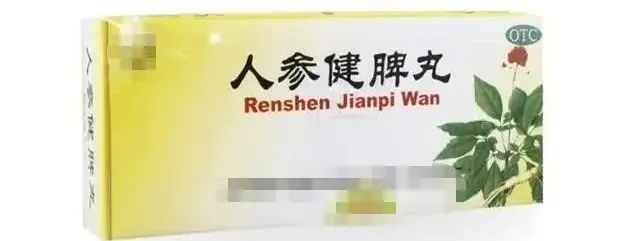
Image for reference only; please use TCM formulas under physician guidance.
Composed of Ren Shen, Chao Bai Zhu, Fu Ling, Shan Yao, Chen Pi, Mu Xiang, Sha Ren, Zhi Huang Qi, Dang Gui, Chao Suan Zao Ren (Fried Ziziphus Spinosa), and Zhi Yuan Zhi (Polygala).This formula strengthens the spleen and boosts Qi, harmonizes the stomach, and stops diarrhea. It is used for symptoms caused by spleen and stomach weakness, such as indigestion, abdominal discomfort, nausea, vomiting, abdominal pain, loose stools, lack of appetite, and fatigue.In addition to commonly used Qi-boosting herbs like Ren Shen, Bai Zhu, Huang Qi, and Shan Yao, this formula also includes Suan Zao Ren and Yuan Zhi, which have calming effects, and Dang Gui, which nourishes blood, thereby achieving better Qi-boosting effects by tonifying the heart, spleen, and lungs.
7. Precautions for Using Qi-Boosting TCM Formulas
1. The above Qi-boosting herbs should not be used by patients with colds or fevers. Avoid use in cases of excessive eating leading to abdominal distension.2. The above medications should be used under the guidance of a physician, especially for those with severe chronic diseases such as hypertension, heart disease, liver disease, diabetes, kidney disease, as well as for children, pregnant women, nursing mothers, and the elderly or frail individuals.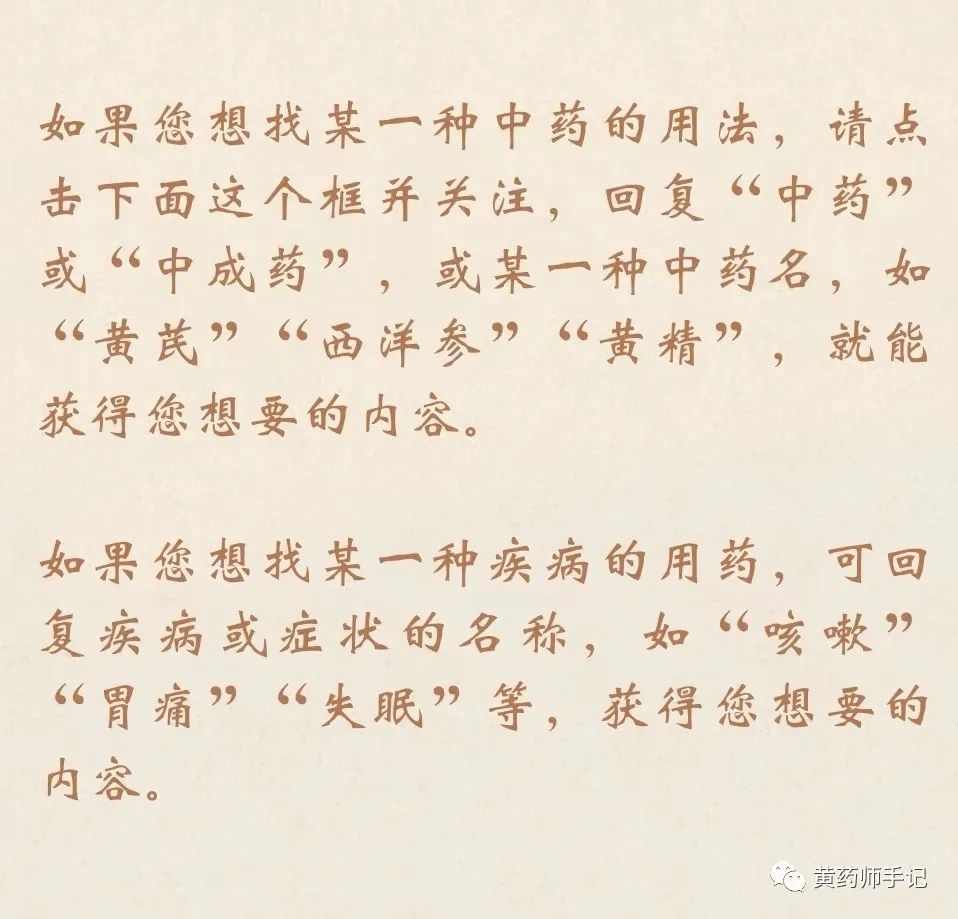 Recommended Reading:【Chronic Gastritis, Atrophic Gastritis, Cancer, commonly used herb for tonifying Qi and nourishing blood, supporting the body against cancer, can be used for tea】【A type of herb that can be eaten as a vegetable, tonifying spleen deficiency, transforming dampness, detoxifying alcohol, and reducing obesity】【Chronic Pharyngitis, throat pain, throat itch, foreign body sensation, commonly used herb to help clear the throat and moisten the throat】【It is the top herb for soothing the liver and relieving depression, commonly used for breast hyperplasia, throat foreign body sensation, and chest tightness and depression】【Tonifying both Qi and blood, strengthening both spleen and lungs, supporting the body while expelling pathogens, it is the most commonly used Qi-boosting herb】【Stops cough from above, consolidates essence from below, stops sweating from outside, and stops diarrhea from inside; this herb can both tonify and consolidate】
Recommended Reading:【Chronic Gastritis, Atrophic Gastritis, Cancer, commonly used herb for tonifying Qi and nourishing blood, supporting the body against cancer, can be used for tea】【A type of herb that can be eaten as a vegetable, tonifying spleen deficiency, transforming dampness, detoxifying alcohol, and reducing obesity】【Chronic Pharyngitis, throat pain, throat itch, foreign body sensation, commonly used herb to help clear the throat and moisten the throat】【It is the top herb for soothing the liver and relieving depression, commonly used for breast hyperplasia, throat foreign body sensation, and chest tightness and depression】【Tonifying both Qi and blood, strengthening both spleen and lungs, supporting the body while expelling pathogens, it is the most commonly used Qi-boosting herb】【Stops cough from above, consolidates essence from below, stops sweating from outside, and stops diarrhea from inside; this herb can both tonify and consolidate】